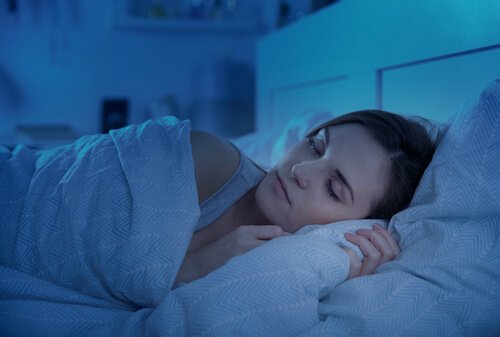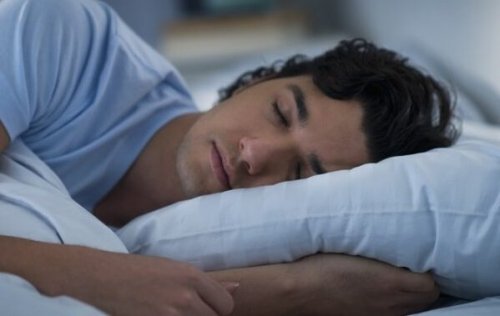Why is Sleeping Necessary?

Generally speaking, sleep is necessary for basic human functioning. Our body requires a period of rest and rejuvenation in order to revitalize and heal itself. This is why sleeping is so important.
However, various arguments suggest that this isn’t the full explanation of why we sleep. For example, most people sleep between eight and nine hours each night. Other people sleep a lot more or a lot less than that. For example, some people only need three hours of sleep.
Our sleep requirements also change throughout the course of our life. As we get older, we usually need less sleep. If sleeping only existed to restore our bodies, it’s slightly difficult to understand why the elderly require less sleep than younger people.
In addition, people who have participated in sleep deprivation experiments haven’t shown long-lasting effects from the experiment. These experiments consist of keeping participants awake for up to 200 consecutive hours. People involved in these experiments showed fatigue, lack of concentration, irritability, decreased activity, and they tended to suffer from hand tremors. However, when they went back to their normal sleep patterns, their symptoms disappeared.

Sleeping is a biological necessity
Sleeping is a biological necessity that allows our bodies to restore the physical and psychological functions essential for proper performance. Sleep and wakefulness are brain functions and are subject to alterations in the nervous system.
During sleep, hormonal, biochemical, metabolic, and temperature changes occur. All these changes are necessary for proper functioning during the day.
Researchers have discovered that sleep is vital for learning and that it’s intimately related to our health. In fact, it’s a critical part of health. Likewise, researchers link sleep to the consolidation and maintenance of memory. When we sleep, our brain “repairs itself”. It’s as if going to sleep is like taking our brains to the repair shop to get maintenance done.
Why do we sleep?
There are two mechanisms or processes that are responsible for sleep. A person’s previous sleep and wakefulness history determines the “S” process. This happens when the person has an increased likelihood of sleeping after sleep deprivation. It’s like debt building up.
Our endogenous biological clock controls the “C” process. This process is independent of the person’s previous sleep and wakefulness history. We tend to sleep while our body temperature drops (first part of the night). We wake up when our body temperature increases in the second part of the night.

What happens if we don’t sleep?
Our bodies require light and deep sleep to stay healthy. Sleep deprivation has an extensive impact. It affects not only our physical health but also our psychological health. Some of the effects of going without sleep are:
- Changes in memory.
- Irritability.
- Anxiety.
- Depression.
- Symptoms similar to attention deficit disorder.
- Decreased reaction time and accuracy.
- Lack of motor control.
- Tremors.
- Risk of obesity.
- Increased heart rate.
- Risk of heart attack.
- Neurological alterations.
- Seizures.
- Growth suppression.
As we can see, it’s obviously necessary to sleep. At least it’s clear that, if we don’t sleep, we’ll experience many serious health problems.
The benefits of sleep
Besides being a great pleasure for many people, sleeping well has positive effects on our body. Some specialists say that there are six main benefits of getting a good night’s sleep.
- Sleeping helps memory. According to many studies, a ninety-minute nap helps improve memory and dexterity.
- Sleep protects our heart and reduces the risk of depression. When we sleep, we relax. This facilitates the production of serotonin which counteracts the effects of stress hormones. Therefore, sleeping helps us be happier.
- When we sleep, we’re healthier. Sleep regenerates our immune system. This way we can fight toxins and overcome infections.
- Sleeping helps you lose weight. A lack of sleep causes fat cells to release less leptin, which is the appetite suppressor hormone.
- Sleeping improves our creativity. If the brain is rested, our memory works perfectly. This makes our imaginative capacity greater, which facilitates creativity.

As we can clearly see, getting a good night’s sleep has many benefits. Not sleeping has a lot of negative consequences that can affect us for a long time.
Generally speaking, sleep is necessary for basic human functioning. Our body requires a period of rest and rejuvenation in order to revitalize and heal itself. This is why sleeping is so important.
However, various arguments suggest that this isn’t the full explanation of why we sleep. For example, most people sleep between eight and nine hours each night. Other people sleep a lot more or a lot less than that. For example, some people only need three hours of sleep.
Our sleep requirements also change throughout the course of our life. As we get older, we usually need less sleep. If sleeping only existed to restore our bodies, it’s slightly difficult to understand why the elderly require less sleep than younger people.
In addition, people who have participated in sleep deprivation experiments haven’t shown long-lasting effects from the experiment. These experiments consist of keeping participants awake for up to 200 consecutive hours. People involved in these experiments showed fatigue, lack of concentration, irritability, decreased activity, and they tended to suffer from hand tremors. However, when they went back to their normal sleep patterns, their symptoms disappeared.

Sleeping is a biological necessity
Sleeping is a biological necessity that allows our bodies to restore the physical and psychological functions essential for proper performance. Sleep and wakefulness are brain functions and are subject to alterations in the nervous system.
During sleep, hormonal, biochemical, metabolic, and temperature changes occur. All these changes are necessary for proper functioning during the day.
Researchers have discovered that sleep is vital for learning and that it’s intimately related to our health. In fact, it’s a critical part of health. Likewise, researchers link sleep to the consolidation and maintenance of memory. When we sleep, our brain “repairs itself”. It’s as if going to sleep is like taking our brains to the repair shop to get maintenance done.
Why do we sleep?
There are two mechanisms or processes that are responsible for sleep. A person’s previous sleep and wakefulness history determines the “S” process. This happens when the person has an increased likelihood of sleeping after sleep deprivation. It’s like debt building up.
Our endogenous biological clock controls the “C” process. This process is independent of the person’s previous sleep and wakefulness history. We tend to sleep while our body temperature drops (first part of the night). We wake up when our body temperature increases in the second part of the night.

What happens if we don’t sleep?
Our bodies require light and deep sleep to stay healthy. Sleep deprivation has an extensive impact. It affects not only our physical health but also our psychological health. Some of the effects of going without sleep are:
- Changes in memory.
- Irritability.
- Anxiety.
- Depression.
- Symptoms similar to attention deficit disorder.
- Decreased reaction time and accuracy.
- Lack of motor control.
- Tremors.
- Risk of obesity.
- Increased heart rate.
- Risk of heart attack.
- Neurological alterations.
- Seizures.
- Growth suppression.
As we can see, it’s obviously necessary to sleep. At least it’s clear that, if we don’t sleep, we’ll experience many serious health problems.
The benefits of sleep
Besides being a great pleasure for many people, sleeping well has positive effects on our body. Some specialists say that there are six main benefits of getting a good night’s sleep.
- Sleeping helps memory. According to many studies, a ninety-minute nap helps improve memory and dexterity.
- Sleep protects our heart and reduces the risk of depression. When we sleep, we relax. This facilitates the production of serotonin which counteracts the effects of stress hormones. Therefore, sleeping helps us be happier.
- When we sleep, we’re healthier. Sleep regenerates our immune system. This way we can fight toxins and overcome infections.
- Sleeping helps you lose weight. A lack of sleep causes fat cells to release less leptin, which is the appetite suppressor hormone.
- Sleeping improves our creativity. If the brain is rested, our memory works perfectly. This makes our imaginative capacity greater, which facilitates creativity.

As we can clearly see, getting a good night’s sleep has many benefits. Not sleeping has a lot of negative consequences that can affect us for a long time.
This text is provided for informational purposes only and does not replace consultation with a professional. If in doubt, consult your specialist.







